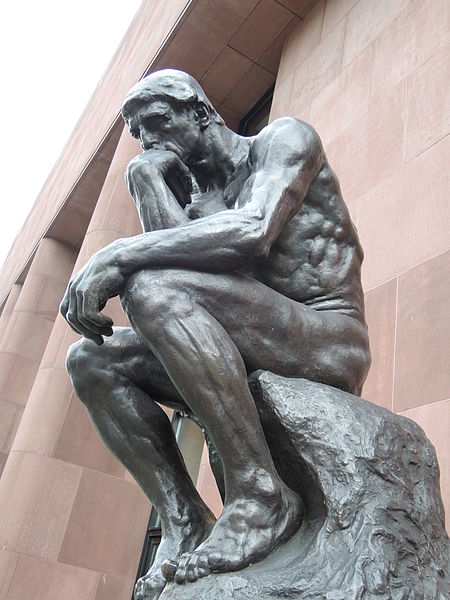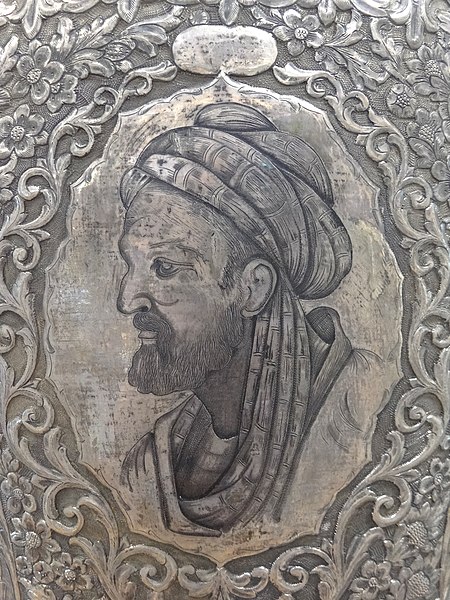Western philosophy refers to the philosophical thought and work of the Western world. Historically, the term refers to the philosophical thinking of Western culture, beginning with the ancient Greek philosophy of the pre-Socratics. The word philosophy itself originated from the Ancient Greek philosophía (φιλοσοφία), literally, "the love of wisdom" Ancient Greek: φιλεῖν phileîn, "to love" and σοφία sophía, "wisdom").
Bust of Socrates, Roman copy after a Greek original from the 4th century BCE
Aristotle in The School of Athens, by Raphael
Roman Epicurus bust
Saint Augustine.
Philosophy is a systematic study of general and fundamental questions concerning topics like existence, reason, knowledge, value, mind, and language. It is a rational and critical inquiry that reflects on its own methods and assumptions.
The statue The Thinker by Auguste Rodin is a symbol of philosophical thought.
Physics was originally part of philosophy, like Isaac Newton's observation of how gravity affects falling apples.
Aristotle was a major figure in ancient philosophy and developed a comprehensive system of thought including metaphysics, logic, ethics, politics, and natural science.
Portrait of Avicenna on a silver vase. He was one of the most influential philosophers of the Islamic Golden Age.








